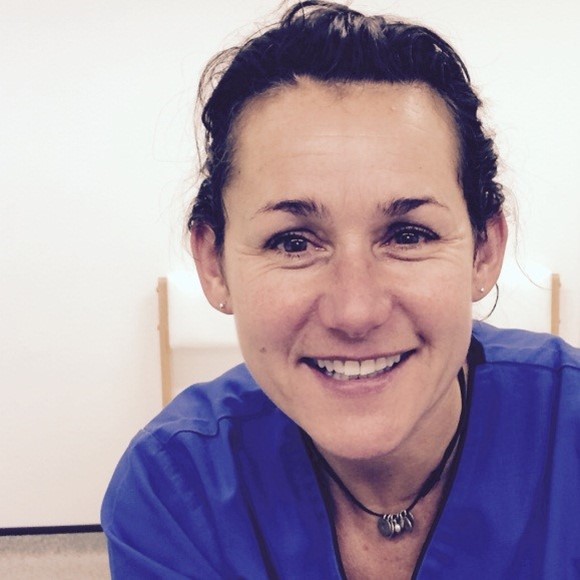Life As A Dental Therapist
Fiona Sandom - Dental Therapist, Lead Dental Educator/Subject Specialist
Articles
I am a dental therapist which means that I am able to provide certain dental treatments to patients of all ages in various dental care settings.

Fiona Sandom
Place(s) of work:
Glandwr Dental Practices in Criccieth & Pwllheli Dental Practices/HEIW/All Wales Faculty for Dental Care Professionals
What does your role involve?
I am a dental therapist which means that I am able to provide certain dental treatment to patients of all ages an various dental care settings. The treatment dental therapists are able to provide is governed by The General Dental Council, and this is referred to as our “scope of practice”. The Scope of practice that a dental therapist can undertake on qualification are the promotion of dental health and education, preventative treatments, such as fluoride varnish as well as treatments for gum disease and direct restoration of teeth with “fillings” in the most appropriate material for the situation.
Dental Therapists are also able to examine a patient and diagnose and treatment plan within their scope of practice. In order to do this, we are able to justify, take and use them in our treatment planning and recording of disease. We are also able to do “nerve treatment” on the primary dentition (baby teeth), place preformed crowns on, and extract them. In order to provide our treatment painlessly, we are able to administer local anaesthetic.
Following qualification, there are additional treatments that we can take on following appropriate training and these include tooth whitening, suture removal (stitches) and treatment of anxious patients with Inhalation Sedation (Happy Gas).
I am fortunate to be able to use all my training in treating patients. In the practice in Criccieth, I see mainly adult patients, but I also see children. The majority of the work I undertake is doing fillings, either on teeth that have new decay or teeth that have been previously restored and need some repair or replacing. I also undertake treating gum disease or periodontal disease and this requires you to be able to motivate the patient to make changes to the oral hygiene regime and introduce new things into their routine. This can sometimes be a challenge, but when it works it makes you feel great!
I used to work in the community dental service where I treated children and young adults who were anxious and used inhalation sedation to help them manage with their treatment. I found this hugely rewarding helping them to cope with having their treatment, meant that we would hopefully prevent any pain and in the worst-case scenario having to go to hospital for a general anaesthetic.
In Pwllheli, I see mainly adults for treatment and maintenance of their gum health.
What do you enjoy most about your job?
People! I really like working with a close team who want to treat dental disease, prevent pain and suffering as a consequence of it and to restore someone’s smile, either because of pain or because of improving their smile.
The impact of dental disease is massive and if we are able to work as part of a team to help reduce and prevent it that is amazing.
As well as working within a team I enjoy the company of patients as each and everyone has a different story and getting to know people is a wonderful thing to do.
There is also nothing more satisfying than finishing a course of treatment and seeing a restored healthy mouth.
How did you get into your role?
I worked as dental nurse in a Dental Practice in Cemaes Bay on the North Of the Ise of Anglesey, following qualification I went to Manchester Dental Hospital to become a dental hygienist and returned to Practice on Anglesey, after about 2 years I attended The University of Liverpool Dental Hospital to qualify as a dental therapist.
What kind of person would your job suit?
You have to like people, we work very closely in dentistry as a team and so you will have to be able to enjoy the company of many people, not just the variety of patient personalities but also those of colleagues.
On top of that, good manual dexterity, the mouth is a small and slippery place to work with sharp instruments.

